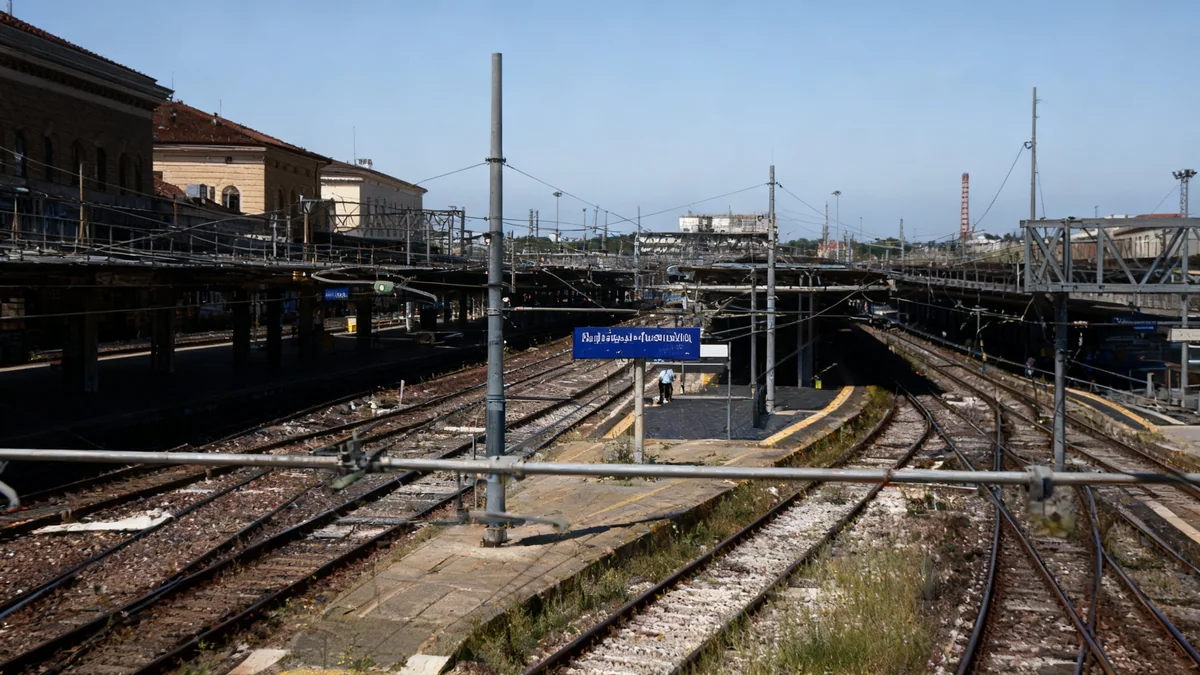British authorities have arrested a man in connection with recent cyberattacks that caused significant disruption at several major European airports. The arrest marks a key development in an ongoing investigation into the widespread travel chaos.
The National Crime Agency (NCA) confirmed the detention, stating that the suspect, identified as a man in his 40s, was apprehended in southern England. These cyber incidents led to manual check-ins and baggage handling, resulting in extensive flight delays and cancellations.
Key Takeaways
- A man in his 40s was arrested in southern England.
- The arrest is linked to recent cyberattacks on European airports.
- Airports in London, Dublin, Brussels, and Berlin experienced disruption.
- The attacks involved "third-party ransomware" affecting Collins Aerospace software.
- Cyberattacks on transport infrastructure are increasing globally.
Arrest Made in Southern England
The UK's National Crime Agency announced on Wednesday, that a suspect had been taken into custody. This individual is believed to be involved in the cyberattacks that impacted air travel across Europe. The arrest took place late on Tuesday.
NCA Deputy Director Paul Foster issued a statement regarding the operation. He emphasized that while the arrest is a positive step, the investigation remains in its initial phases and is actively progressing. Foster also highlighted the persistent global threat posed by cybercrime, noting its significant disruptive effect on the United Kingdom.
Fact: Rising Cyber Threats
Cyberattacks targeting transport hubs have shown a marked increase in recent years. These critical infrastructures rely on complex, interconnected digital systems, making them vulnerable to sophisticated attacks.
Impact on European Airports
The arrest follows several days of operational difficulties at major European airports. Among the affected hubs were London's Heathrow, which is one of Europe's busiest, as well as the primary airports serving Dublin, Brussels, and Berlin. Passengers at these locations faced considerable disruption.
These issues stemmed from what authorities described as "third-party ransomware" attacks. The attacks specifically targeted software provided by Collins Aerospace. Collins Aerospace is a subsidiary of Raytheon, a prominent US defense contractor.
"Although this arrest is a positive step, the investigation into this incident is in its early stages and remains ongoing," stated NCA Deputy Director Paul Foster. "Cybercrime is a persistent global threat that continues to cause significant disruption to the UK."
Software Vulnerability and Operational Challenges
The affected software from Collins Aerospace is crucial for various airport operations. When the system was compromised, airport staff were forced to revert to manual procedures. This included manual check-ins and hand-operated baggage drops.
This shift to manual processes drastically slowed down operations. The result was widespread flight delays and numerous cancellations across the affected airports. The company, Collins Aerospace, has confirmed it is actively investigating the incident to understand the full extent of the breach and its impact.
Understanding Ransomware Attacks
Ransomware is a type of malicious software that encrypts a victim's files. The attacker then demands a ransom payment, usually in cryptocurrency, in exchange for the decryption key. If the ransom is not paid, the data may be permanently inaccessible or publicly released.
The Increasing Threat to Aviation
The aviation sector has become a frequent target for cybercriminals. Airports and airlines depend heavily on vast, interconnected digital networks to manage everything from air traffic control to passenger services. This reliance creates numerous points of vulnerability.
According to cybersecurity experts, the sophistication of these attacks is growing. Attackers often seek to exploit weaknesses in supply chains, targeting third-party software providers like Collins Aerospace. Compromising a single vendor can then affect multiple clients, leading to widespread disruption.
Previous Incidents and Future Concerns
This is not an isolated incident. In recent years, several airports and airlines worldwide have reported experiencing cyber incidents. These range from data breaches to operational disruptions, highlighting a critical need for enhanced cybersecurity measures across the industry.
The ongoing nature of the investigation suggests that authorities are working to uncover the full scope of the network behind these attacks. Ensuring the resilience of aviation infrastructure against such threats is a major priority for national security and international travel.
Data Point: Cyberattack Frequency
Reports indicate a significant increase in cyberattacks on critical infrastructure globally. In 2023, the transportation sector alone saw a 25% rise in reported cyber incidents compared to the previous year, underscoring the escalating threat landscape.
Ongoing Investigation Details
The National Crime Agency has not released specific details about the suspect or the exact nature of their involvement. This is common practice in the early stages of complex cybercrime investigations to protect operational integrity.
Law enforcement agencies often collaborate internationally on such cases. Cyberattacks frequently cross national borders, requiring coordinated efforts to track down perpetrators and dismantle criminal networks. The investigation will likely involve forensic analysis of compromised systems and digital trails.
- Investigators will analyze digital evidence from affected systems.
- Collaboration with international law enforcement partners is expected.
- The goal is to identify all individuals and groups responsible.
The outcome of this investigation could provide valuable insights into the methods and motivations of groups targeting critical infrastructure. It also serves as a reminder for organizations to continuously update their cybersecurity protocols and response plans.
Ensuring the security of airport operations is paramount for public safety and economic stability. The arrest represents a step forward in combating the growing threat of cybercrime against essential services.





